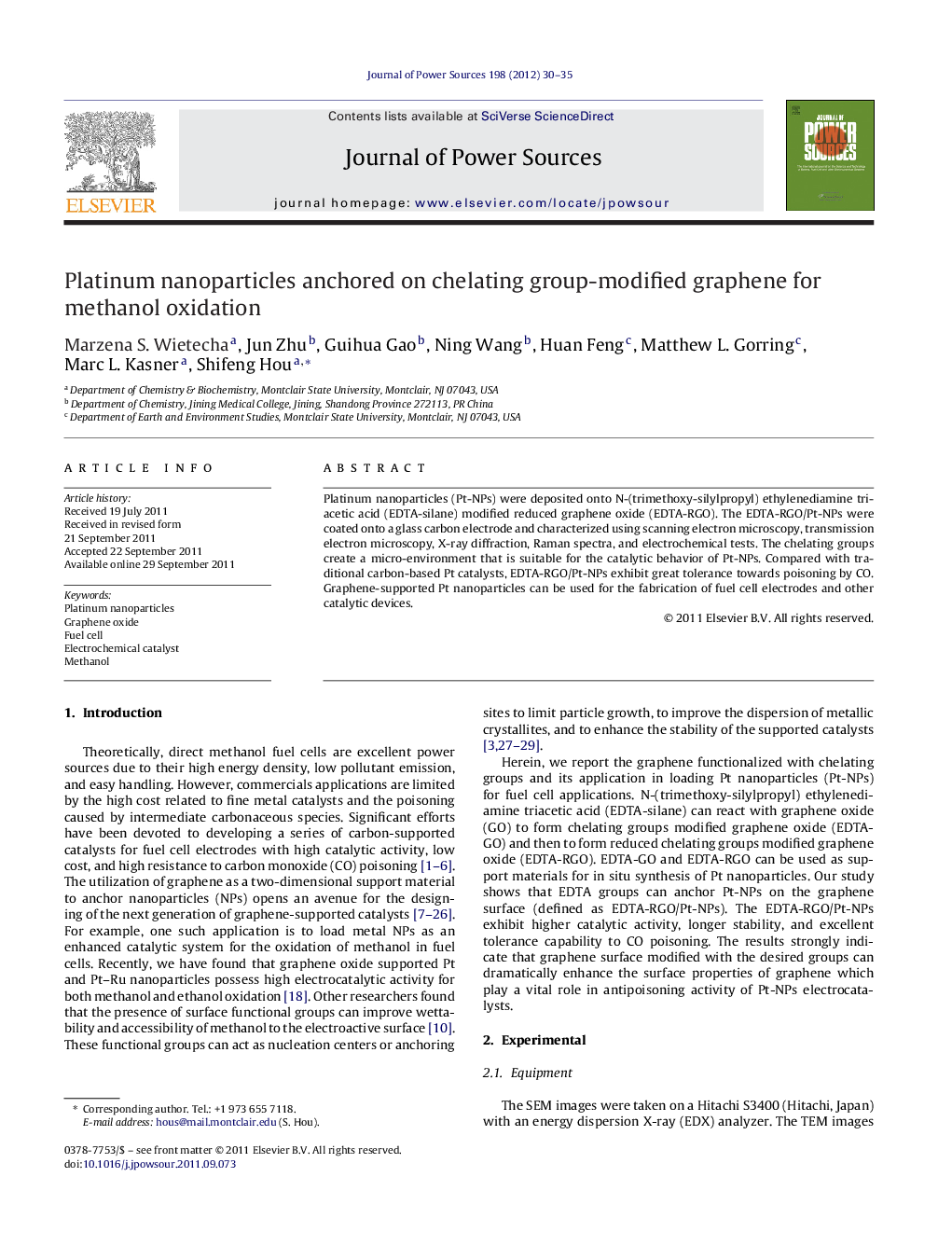| Article ID | Journal | Published Year | Pages | File Type |
|---|---|---|---|---|
| 1288386 | Journal of Power Sources | 2012 | 6 Pages |
Platinum nanoparticles (Pt-NPs) were deposited onto N-(trimethoxy-silylpropyl) ethylenediamine triacetic acid (EDTA-silane) modified reduced graphene oxide (EDTA-RGO). The EDTA-RGO/Pt-NPs were coated onto a glass carbon electrode and characterized using scanning electron microscopy, transmission electron microscopy, X-ray diffraction, Raman spectra, and electrochemical tests. The chelating groups create a micro-environment that is suitable for the catalytic behavior of Pt-NPs. Compared with traditional carbon-based Pt catalysts, EDTA-RGO/Pt-NPs exhibit great tolerance towards poisoning by CO. Graphene-supported Pt nanoparticles can be used for the fabrication of fuel cell electrodes and other catalytic devices.
Graphical abstractFigure optionsDownload full-size imageDownload as PowerPoint slideHighlights► A new type chelating group modified graphene (EDTA-RGO) was used as an electrode material for the fabrication of fuel cell. ► Platinum nanoparticles (Pt-NPs) were successfully synthesized on EDTA-RGO surface. ► EDTA-RGO/Pt-NPs exhibit high performance as the methanol oxidation catalyst. ► Pt-NPs on EDTA-RGO surface demonstrate excellent tolerance performance towards the CO poisoning.
